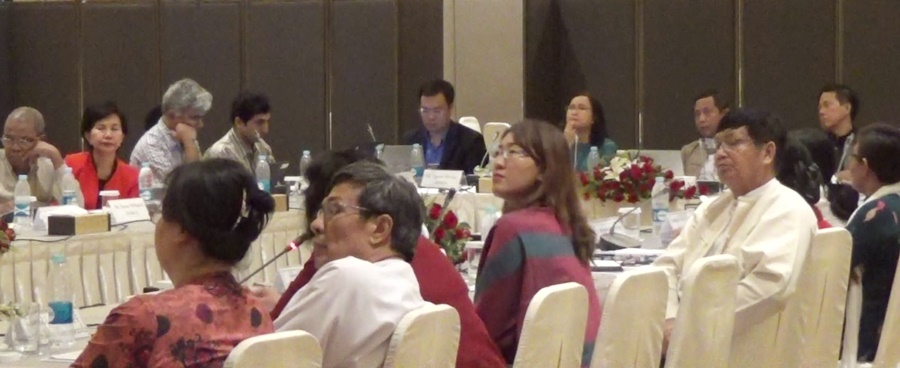Cognizant of the need to carefully harness the potential of these sectors, the Ministry of Agriculture, Livestock and Irrigation (MoALI) of Myanmar, the key institution responsible for food production in the country, and the Southeast Asian Regional Center for Graduate Study and Research in Agriculture (SEARCA) co-organized the Policy Roundtable on Rice and other Important Agricultural Commodities: Towards Evidence-Based Policy Formulation on 1 April 2017 in Nay Pyi Taw. Evidence-based and coherent policy-making was deemed a crucial avenue towards this end.
The event was opened by Dr. Tin Htut, MoALI Permanent Secretary, who underscored the need for evidence-based policy-making to be able to safeguard available resources and realize the potential these offer. To better understand the context of Myanmar, an overview of its agriculture sector was provided by Yezin Agricultural University (YAU), which discussed agricultural policies and strategic thrusts; the Livestock Breeding and Veterinary Department (LBVD), which explained the National Livestock Policy; and the Department of Fisheries (DOF) under MoALI, which presented its integrated paddy and fish program. The Myanmar Rice Federation discussed the need for inclusive and sustainable rice policy and the Myanmar Fisheries Federation talked about the same need for the fishery sector and the challenges it currently faces. Perspectives from the private sector were likewise shared by the Myanmar Fruit, Flower and Vegetable Producer and Exporter Association (MFVP) and the Myanmar Pulses, Beans, and Sesame Seeds Merchants Association (MPBSSMA).
Dr. Ramon L. Clarete, Professor at the University of the Philippines School of Economics, who served as Technical Coordinator of the policy roundtable, discussed evidence-based policy formulation (EBP) and its benefits. He also shared experiences from Indonesia and the Philippines on the challenges faced in by the livestock industry, and in rice as an import substitute. The Vietnam experience on promoting rice as an export commodity was likewise shared by Dr. Nguyen Duc Loc, Director of the Center for Agricultural Policy in the South, Institute of Policy and Strategy for Agriculture and Rural Development (IPSARD). Continuing with the effort to learn from the experiences of other countries, Dr. Devesh Roy, Research Fellow of the International Food Policy Research Institute (IFPRI)-South Asia, discussed pulses (beans) trade in India, the country being the largest producer and consumer of pulses. He went on to discuss trade analysis relevant for Myanmar.
Participants to the roundtable were from various departments of MoALI, the private sector, farmers' organization, international organizations based in Myanmar, IFAD, IFPRI, and SEARCA. (Carmen Nyhria G. Rogel)
